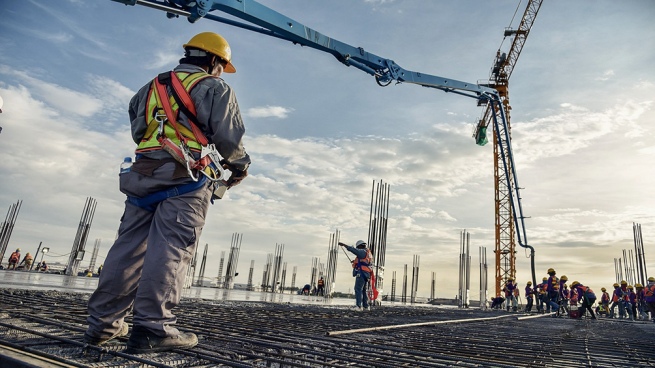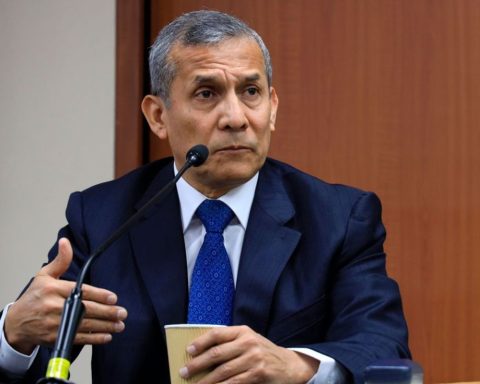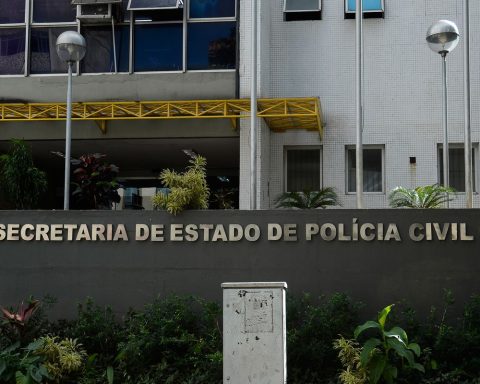The president of the Argentine Chamber of Construction (Camarco), Gustavo Weissestimated that the sector’s activity grew between 6 and 7% in the first half of the year and stressed that employment continues to grow month after month, currently reaching 470,000 jobs.
Weiss, in an interview with Télam, also warned about some “conditions” of the macroeconomy that can “slow down” the performance of the activity.
The businessman, after pointing out that construction companies have difficulties at the country level to hire labor, said that in many undertakings salaries are paid above the parity of the sector and pointed out that the main component of this situation is “the long-standing inflationary process“that affects the purchasing power of those who earn less.
Here are the main sections of the report:
–What evaluation are you making of the first half of the year?
— During the pandemic, public works had a very strong traction since mid-2020 and simultaneously there was a very strong investment and demand for the construction and refurbishment of single-family homes around the big cities as a result of the fact that people wanted to leave the centers for the outskirts and also under cover of a significant exchange difference between the dollar and the weight. A little calmer is the large private project, where there are other difficulties related to macroeconomic issues or the economy in general, but as a whole the industry continues to grow and we estimate that this first semester we will end up growing compared to 2021 in the order of 6% or 7%.
–In other words, growth above general activity…
–Construction always has a hyper reaction to economic cycles, to upswings as well as downswings. So it is natural that we grow a little more than the economy in general. But from the financial crisis of May 2018 there was a decline in the industry, 2019 was decidedly bad and 2020 we started with the pandemic. But starting in mid-2020 there was significant and uninterrupted growth.
— And employment also moves with the same intensity, what do you project for this semester?
–We are today at 470,000 jobs, both daily and monthly staff, and it is one of the most direct indicators that the activity is growing, that we are taking jobs month by month.. The maximum peak that we had was 540,000 people in 2017 and before that we had very good years with many high levels of activity.
— And what is happening with large private projects in this macroeconomic context?
—The large private work is directly related to the general performance of the economy. When the economy is doing very well and there are good expectations, people invest, start a new building or companies expand their plants because they are expanding. But the macroeconomics in public works is also affecting us because despite the fact that there is a very strong investment from the national government and from some central provinces, we are beginning to have problems of price increases that make it difficult for some works to continue.
All public works contracts have a price updating system that tries to maintain the contracts according to the increase in inputs and that formula that is applied with high inflation does not represent reality and causes many works to have financial or economic problems. There we see a problem that we are talking about with the authorities, which can cause many public works to begin to slow down

— But is it an update problem or a non-payment problem?
GW: The national and provincial governments have liquidity and pay us very well and this must be highlighted because it is not common. In industry, the problem is not financial but economic, and I also want to point out that the increases (in input prices) in industry and in some sectors are well above the 56% level of inflation. We have had 50% increases in asphalt in the first five months of the year and the same happens with other supplies, and in many cases well above general inflation that are not reflected in the price update formula and complicate it. In some cases it could be said that it is a general rise in costs due to the international crisis, but mostly it is a problem of supply and demand.
— Are you having problems obtaining labor in different regions of the country?
–It is a widespread problem throughout the country, we have problems of specialized people, people with experience, engineers, foremen, technicians. Typical each time activity increases, which today does not only affect our activity, but other industries also have specialized personnel problems.
— Recently, the Minister of Public Works, Gustavo Katopodis, called on the sector to make an effort to grant better salaries. What is the reality that you see in that?
—Better salaries can be given, but it is conditioned to the macroeconomic situation to compare them with the rest of the economy. But there is an enormous number of works of a certain magnitude throughout the country where the salaries are actually much higher to get people, even this is something that has already been discussed a lot with the Uocra. In these cases, the salaries are above parity by 20 or 30 percent and also with a series of benefits and additional that ultimately result in a better salary.
So in part what the minister said we are already doing. It is true that there will be small works, especially in the interior of the country, where only the basic salary of the agreement must be paid, but, I repeat, in many others we are paying considerably more than what the parity says.
–Without interpreting the minister, isn’t the claim precisely because of that comparison in the industry?
–There are two analyzes here. One is what the industry pays and another is if people have enough, because money is another problem. When one sees the very long-standing inflationary process, inflation by definition is definitely the liquefaction of wages, so this is the direct consequence: that the adjustment is made day by day with the overflowing inflation and it reaches people every time minus the salary.


















